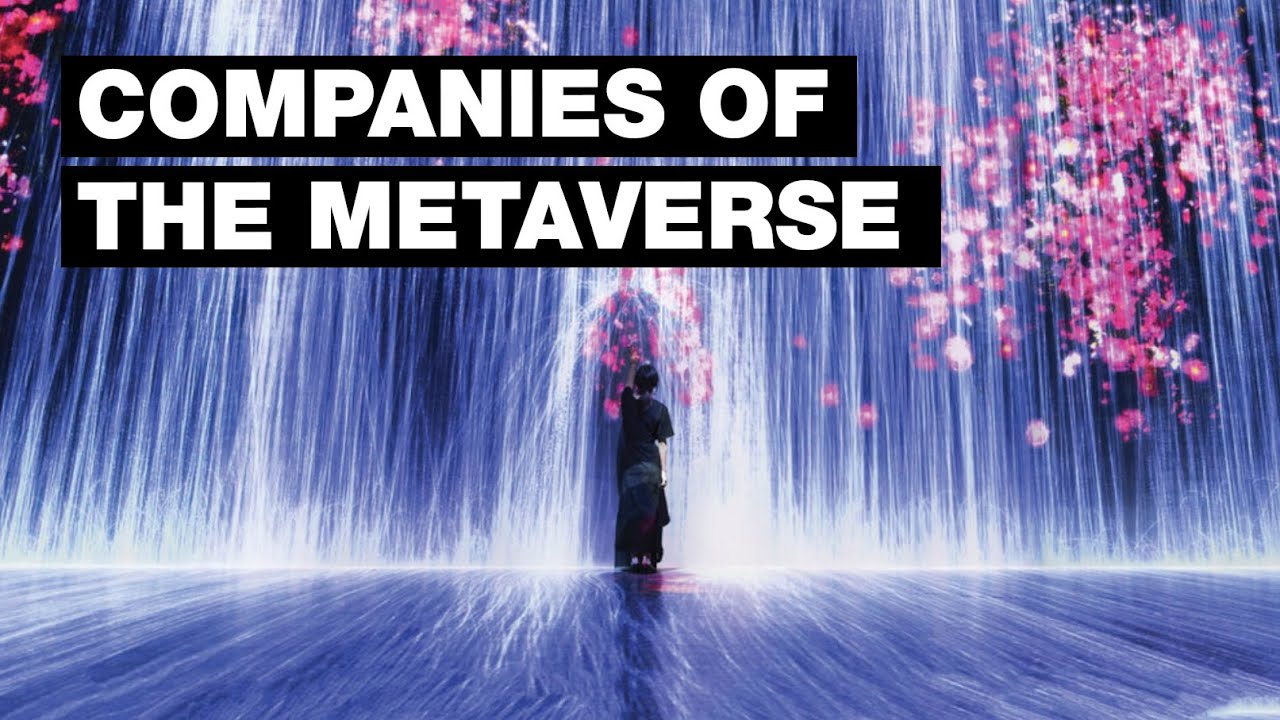In AR/VR Development
⏩ The Metaverse: 7 Companies That Are Making It A Reality - read the full article about AR technology, AR/VR Development and Augmented & Virtual Reality Solutions from Future Business Tech on Qualified.One

Youtube Blogger

The metaverse is the next step in the internets evolution. It’s the convergence of physical, augmented, and virtual reality in a shared online space.
The metaverse is a 4d version of our current internet and it can be thought of as an internet that youre inside of rather than one that youre merely looking at.
One critical aspect for this to work is that it can’t be controlled by one company. It has to be a decentralized system with many companies supporting it.
Companies that are likely to bring it to life are: 1. Facebook According to Mark Zuckerberg, Facebook will likely transition from a social media company to a metaverse company within the next 5 to 10 years.
Facebook already has a couple of products that will bring us closer to the Metaverse: • Facebook Horizon lets you explore virtual worlds where you can connect with people across the world, participate in fun challenges, and even create your own virtual worlds • And Facebook Workrooms is a collaboration experience that lets people come together to work in the same virtual room, regardless of physical distance Facebook’s has divisions that focus on products for communities, creators, commerce, virtual reality, and augmented reality. And those divisions will increasingly work on new initiatives to support the development of a metaverse. Facebook spends 5 billion dollars annually on these initiatives.
In the near future, Facebook will probably incentivize people to join Metaverse communities and use related services that require its virtual reality and augmented reality headsets.
And as those communities populate, Facebook may gradually add new features and value propositions to increase adoption rates.
In addition to its popular Oculus virtual reality headsets, Facebook is also working on augmented reality headsets.
To top it off, Facebook has patents for semiconductor and brain-to-machine computing interfaces.
All of this indicates that Facebook is aiming to get the first-mover advantage when it comes to hardware market within the metaverse ecosystem, Metaverse communities, and Metaverse workplace solutions.
2. Epic Games Epic Games is famous for various products such as Fortnight, Roblox, Unreal Engine, and MetaHumans. Fortnight and Roblox in particular have metaverse-like elements like their own creator economies and the ability to use a single avatar in multiple virtual worlds.
Epic Games is currently working on developing a decentralized metaverse. This is largely based on the motivation by its CEO, Tim Sweeney, who has a justifiable concern that one company could end up having disproportionate control over the metaverse. A metaverse controlled by one company could lead to that company having excessive control over our lives and the ability to spy on many of our most private interactions.
In April of 2021, Epic Games completed a $1 billion round of funding, which will allow that company to support future growth opportunities.
When it comes to products, Epic Games developed Fortnight, which has a whopping 350 million users. And Fortnight has a creative mode that already feels like a pre-Metaverse. In it, a player can load their avatar that is specific to them and can be used in all Fortnite-related experiences. Players can use their avatars to enter a game-like lobby and can choose from thousands of “doors” (i.e. space-time rifts) that send them to one of thousands of different worlds with up to 99 other players.
At the end of April 2020, Fortnight hosted 5 different virtual concerts. Travis Scott appeared as an avatar in one of those concerts and as many as 12 million players were in attendance.
Roblox is another game developed by Epic Games and it was worth close to $50 billion in the second quarter of 2021.
In the fall of 2019, Roblox launched its “Developer Marketplace”, which allows developers to monetize not just their games, but also the assets, plug-ins, vehicles, 3D models, terrains, and other items those developers produce for those games.
Epic Games’s Unreal Engine could play a significant role in world creation in the Metaverse’s earliest stages. A number of other companies are already leading the charge to create machine learning algorithms that can automatically generate virtual environments and assets to augment Unreal Engine’s current asset-generating capabilities.
Additionally, it would make sense if MetaHumans could be used to create lifelike avatars in a decentralized metaverse.
3. Microsoft Microsoft dominates when it comes to workplace and productivity offerings, which include: • The Windows operating system • Office 365 • Microsoft Azure • And LinkedIn Updated versions of these offerings would fit extremely well within a Metavese ecosystem.
One of Microsoft’s most promising initiatives involves giving Microsoft Azure developers the ability to create digital twins of our physical world that are bound to our world in real-time. This allows us to run simulations in those virtual environments, analyze trends in real-time, and form highly accurate predictions that we could apply to the real world. We could see even more comprehensive uses of virtual environments modeled based on our real-world in the future.
Microsoft also offers the HoloLens, a holographic and mix-reality device specifically intended to enhance productivity and training efforts in multiple industries such as manufacturing, healthcare, and education. This headset enables people to interact with a high variety of work-related virtual objects in their living room. It’s primarily used for enterprise purposes, but as its prices decrease, we may begin to see these headsets sold to the general public.
Microsoft also has an app called Microsoft Mesh that gives users an AR and VR meeting space to interact with other users and 3D content.
Additionally, Microsoft has Xbox Game Pass and Xbox cloud gaming, which could help facilitate efforts to use the software-as-a-service business model for certain Metaverse components.
4. Google Multiple Google initiatives could accelerate the development of the Metaverse including: • Google Maps & Google Street View • Google Earth VR • Stadia • Google Fi (fie) • And Google Assistant Google recently released introduced Project Starline, which makes virtual meetings feel like their in-person. And that’s without the use of a headset. It utilizes the latest advancements of computer vision, machine learning, spatial audio, and real-time compression.
From a consumer’s perspective, they would need to buy technology-equipped video booths that both users enter from their corresponding locations. Each booth would feature a large, 65-inch display that would enable users to engage in what looks like a face-to-face live video call with the other life-sized person sitting directly in front of them.
Google may also release hardware to facilitate augmented reality such an updated version of Google Glass. It’s probably likely that Google will explore advanced virtual and mixed reality headsets as well.
Additionally, Google already offers a popular framework for developing AR experiences called ARCore. Apple is its primary competitor in that space.
5. Apple Apple is unlikely to build a decentralized metaverse platform since Apple traditionally likes to have more control over its product and service ecosystems. But, it may act as a major competitor to Facebook when it comes to hardware related to augmented reality and possibly even virtual and mixed reality.
Apple already offers widely-used frameworks for developing AR experiences such as ARKit and RealityKit. And it offers creative tools like Reality Composer and Reality Converter.
6. Nvidia Nivida has a service called Omniverse that helps businesses bring together various digital assets into a single virtual environment.
Basically, Omniverse enables businesses to work with high numbers of file formats and collaborate with third parties using different tech stacks. A virtual office or workstation in the metaverse would have similar and more advanced capabilities.
Additionally, Nvidia’s GPUs may play a critical role in enabling server-side 3D graphics and advanced artificial intelligence within Metaverse worlds.
7. Amazon Amazon doesn’t have an advantage when it comes to the foremost hardware and software components of the upcoming metaverse. But, according to Matthew Ball, a former head at Amazon, Amazon would likely benefit from enormous increases in AWS usage and digital transactions in its marketplace.
Amazon Alexa might also work seamlessly with augmented reality, virtual reality, brain-machine interfaces, and other technologies in the metaverse ecosystem.
Thanks for watching. Make sure to watch the video to the right to learn more about the metaverse.
Future Business Tech: ⏩ The Metaverse: 7 Companies That Are Making It A Reality - AR/VR Development

